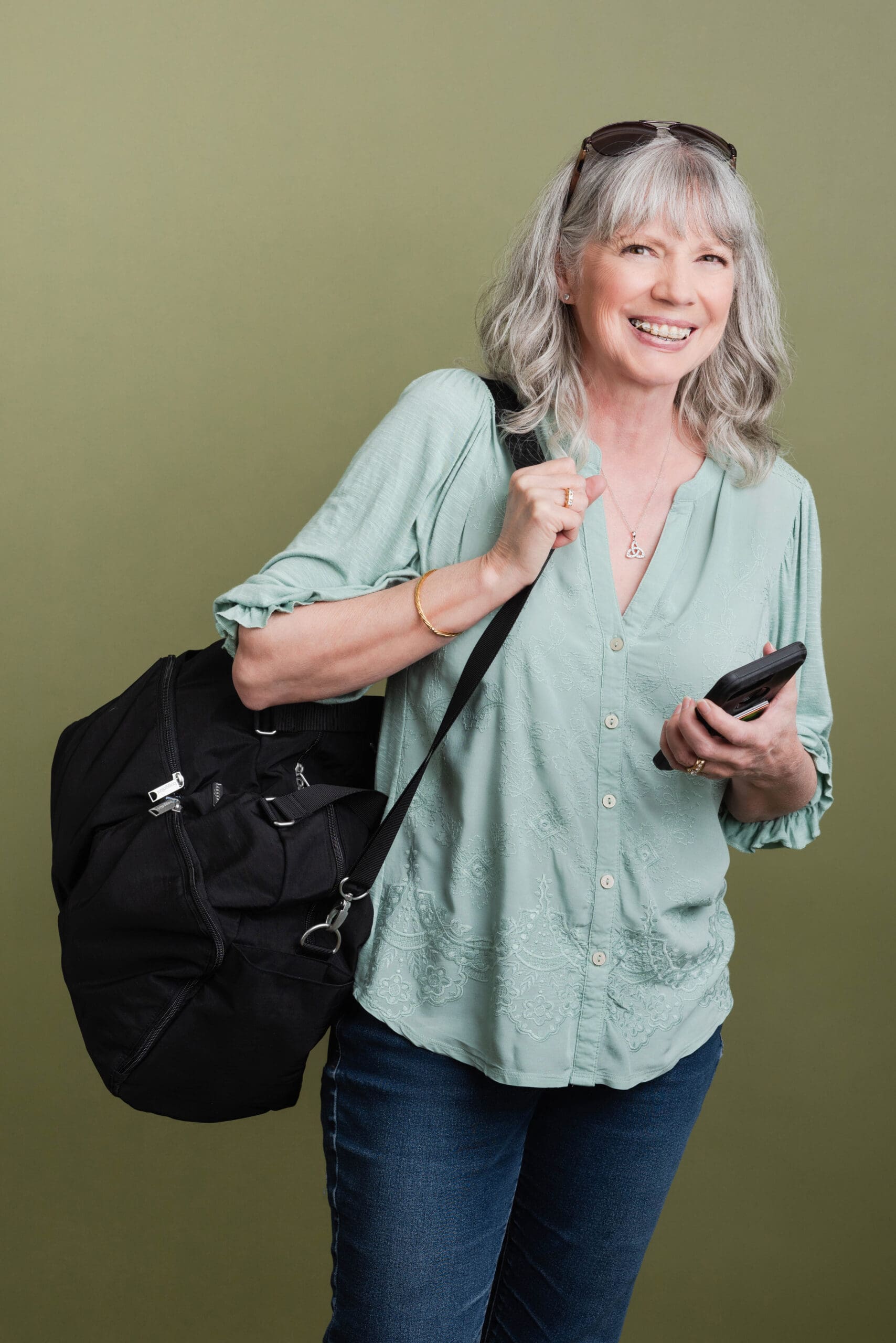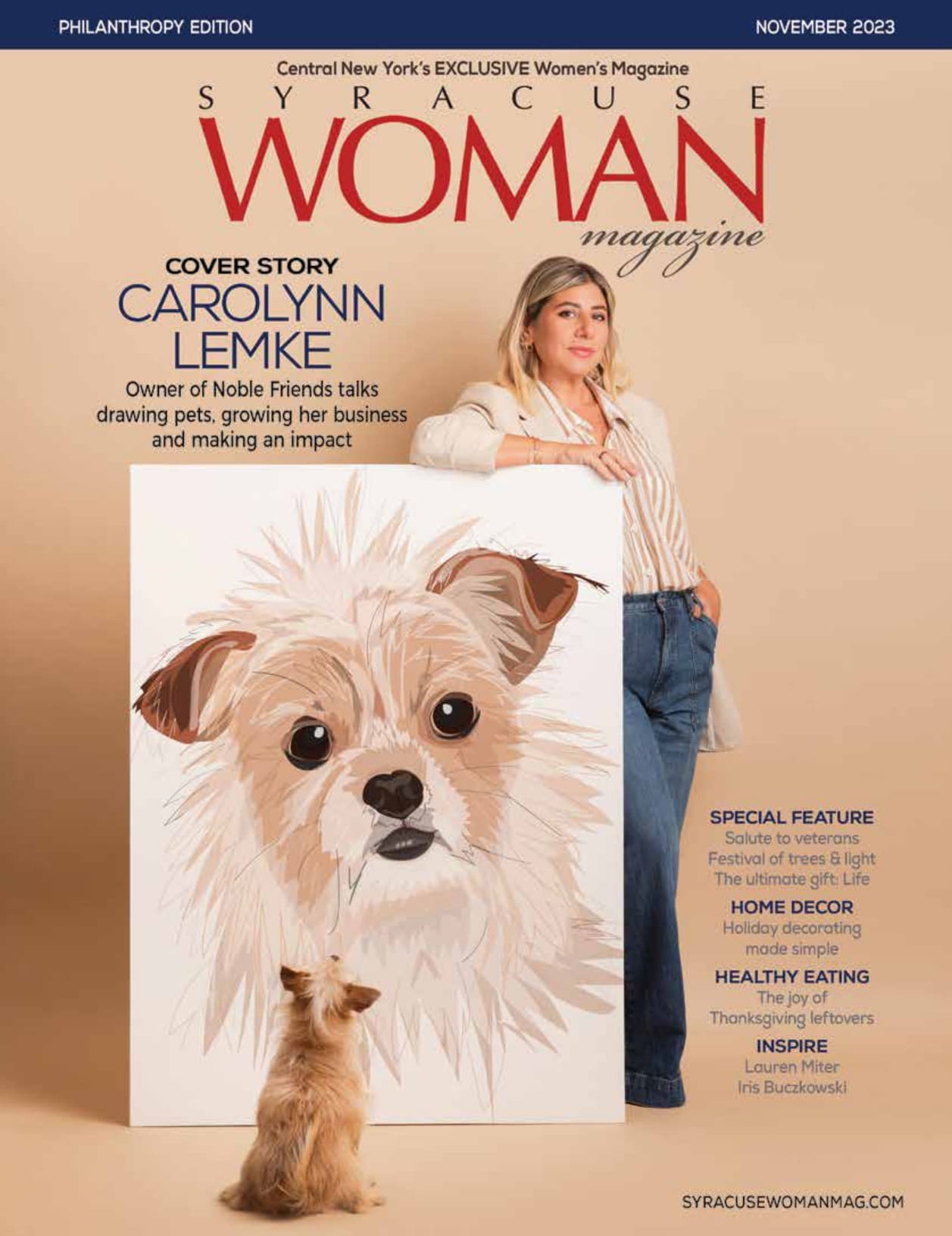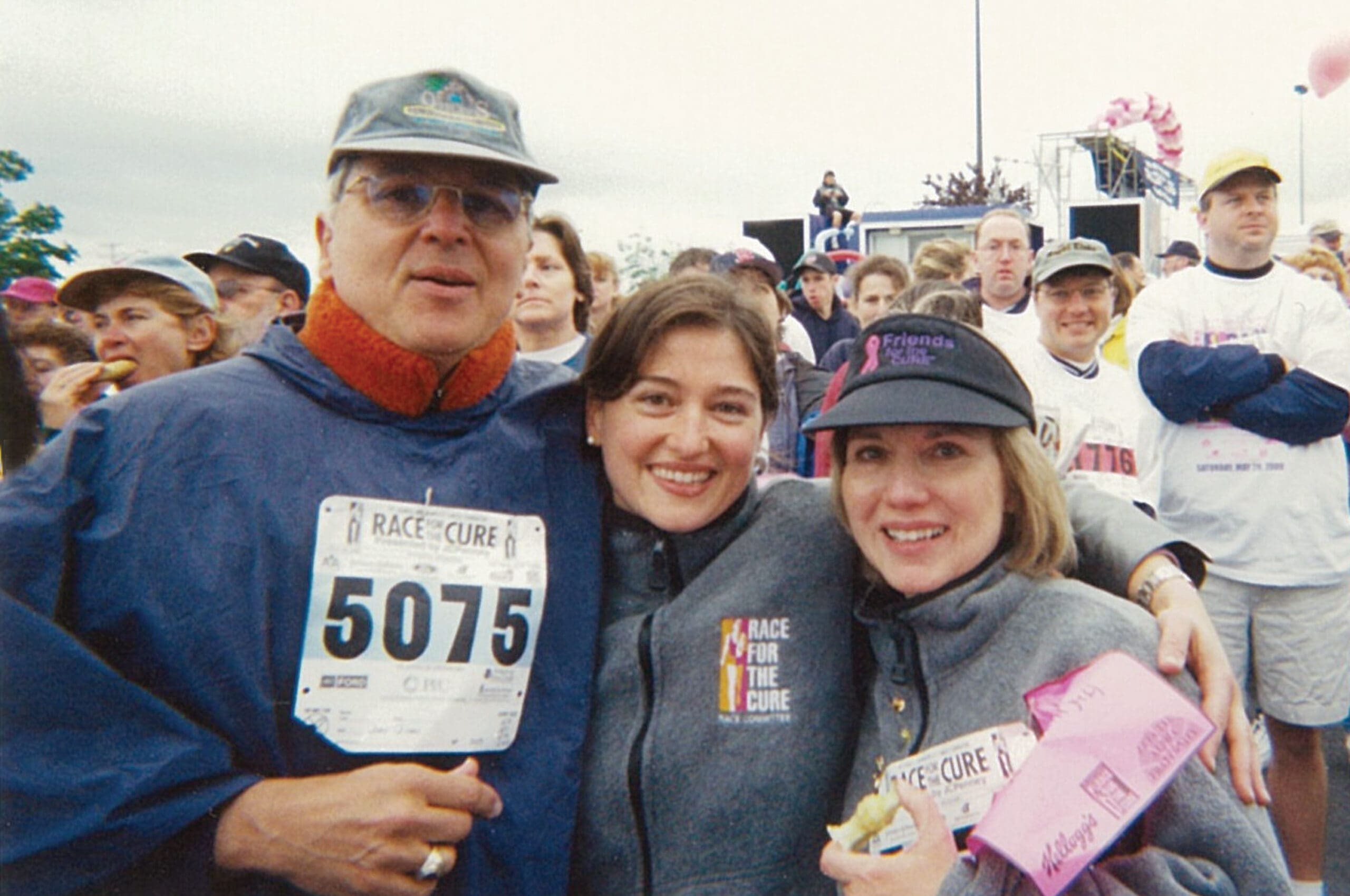As the chair of this year’s Go Red for Women campaign for the American Heart Association, Bea González sees storytelling as a big part of her job.
“There’s a lot of power in story telling,” she said. “You never know the impact if will have on people—‘’Oh, my friend finally did something [about her health] because she heard this,’ or, ‘Because I was talking about this.’ So a big part of what we do is that storytelling.”
And Bea’s story is a good one. It’s not the one you already know — the one about the little girl from Puerto Rico who moved around so much with her parents, who were migrant farm workers, that she went to 13 elementary schools as a child. The girl who was the first member of her family to graduate from high school. The advocate for the Latino community who ultimately then went on to become the first Latina to hold an elected office in the city of Syracuse. That’s a good story, too, but you’ve heard it before. The story Bea is sharing now as part of the Go Red campaign has a much more urgent message.
“I was neglecting all of the things that I was doing to take care of myself. My blood pressure was completely out of control,” she said. “I went to the doctor and he said to me, ‘Well Bea, if you don’t start making changes immediately, someone’s going to be taking care of you pretty soon.’”
That thought terrified Bea, she said, and finally got her to make changes in her life.
“A stroke was not too far into my future if I didn’t make some immediate changes,” she said.
She started exercising, first using the Nintento Wii, then moving on to yoga and Pilates. She made changes to her diet. She worked to reduce her stress. She lost some weight and managed to get her numbers under control. Now, at 64, she’s healthier than she was at 50 — because she didn’t want someone else to bear the burden of caring for her.
“The reality is that, when you do it for yourself, you’re also doing it for other people,” Bea said. “People don’t really get that, but it really does turn out that way.”
Expanding the circle
For the last four years, Bea has been a member of the American Heart Association’s Circle of Red, a group of women who use their influence in the community to raise awareness about heart disease in women. She signed on at the behest of former Go Red chair Evelyn Ingram, consumer affairs manager for Wegmans, and when Bea herself was tapped for the top job this year, she accepted.
“The Go Red campaign is important in terms of what we’re trying to accomplish regarding how we educate women, how we bring the message of heart health to women,” she said. “One of three of [women] is going to die from heart disease… So if we can help each other as women, to learn how to take better care of ourselves, to change that number, that’s the goal.”
The campaign includes events throughout the year aimed at raising awareness of symptoms of heart disease specific to women. Go Red also seeks to raise a total of $450,000 for prevention and education by October.
One of Bea’s goals as chair is to expand the reach of the campaign into the local Latino community.
“Evelyn [Ingram] worked really hard to introduce the organization and its goals to the African-American community,” Bea said. “And now I’m going to do the same thing in the Latino community, and the new American community.”
That’s another place where sharing Bea’s story — the whole of it — will help make a difference.
“That’s the hope, and it’s opening the doors,” she said. “It’s really just expanding the circle, making the circle more inclusive and representative of our community, and just opening the doors. That’s kind of been a part of what I’ve done most of my life. So, I’m just doing it now in this venue, right?”
Bea said the use of Spanish-language materials will also help in spreading the message.
“Having grown up in a bilingual household, you know, when we heard Spanish, when we heard our native language it put a little smile on our face. That’s a way to draw people,” she said.
Red dresses and research grants
The campaign is also reaching out to younger women, and Bea’s job as dean of University College and vice president for community engagement at Syracuse University puts her in a good position for this task, as well.
“I think one of my key criteria at the university is to make connections for our community and our university by focusing on enhanced student experience and faculty engagement and community impact. This does all of that,” she said.
And as it turns out, students at SU are already on board with the mission. The School of Design, which offers a bachelor of fine arts in fashion design, is affiliated with plus-sized supermodel Emme’s Fashion Without Limits campaign, which promotes ready-to-wear, high fashion designs in all sizes. This year, students in the program will design red dresses in sizes 2 to 18 to emphasize the fact that women can be healthy at any size. The designs will be displayed later this month at a fashion event at the Nancy Cantor Warehouse.
There’s also a sorority at the school, Alpha Phi, which is affiliated with the national Alpha Phi Foundation dedicated to women’s heart health. The SU chapter holds a Red Dress Gala every year, the proceeds from which fund women’s heart health research, leadership development programs, scholarships and assistance grants for women in need. Last year’s event raised nearly $30,000.
And then there’s the doctoral student, Plansky Huong, in the College of Engineering and Computer Science, who received a highly competitive fellowship from the American Heart Association to research how medications may affect fetal heart cells.
Bea said she was unaware of these programs when she took on the role of Go Red chair, but she was thrilled to learn of the symmetry.
“It’s all serendipitous, right? When I took on the role, this was not anything I could’ve imagined,” she said. “It’s just all falling into place very nicely. I get excited when that happens.”
Change yourself, change the world
Being part of Go Red has also impacted Bea personally.
“I was starting to lose control again, and when I was approached about taking on this role, it was the motivator to get me to pay more attention,” she said. “So I recommitted to Weight Watchers, increased my yoga. And, I lost about 15, 20 pounds. So I’m using it as a motivator to keep myself honest.”
She admitted that being healthy takes effort.
“It is a lifetime commitment,” she said. “You do fall. You do sometimes lose sight of your commitment in your health, but things get it back.”
She said finding health begins with small steps: small changes to diet, adding in exercise, getting control over one thing at a time rather than attempting a complete overhaul of your life.
“I mean, my husband didn’t eat vegetables. Now, he makes salads all the time. So, to me that’s a huge win,” she said. “Wouldn’t change the world, wouldn’t change any world but ours, but it was good. That’s what people don’t realize. Everything you do is really about changing your sphere. It’s not about anybody else.”
She emphasized that even those small changes to your life can make a big difference.
“Everybody thinks, I have to do this because I have to weigh 135 pounds,’” Bea said. “I think my Weight Watchers [recommended] weight was 130 pounds. If I weighed 130 pounds, you would all ask me if I was sick. It’s finding your place where you’re healthy, where you’re in control.”
Rather than conforming to a societal standard of beauty, she said, find a place where you’re healthy and comfortable.
“Losing 10 pounds makes you feel great. Losing 10 pounds begins to help you get control of your blood pressure as well,” she said. “Yeah, I was happy not to be a 2X, but I’m perfectly happy being a 14/16. I think that probably will be what I will represent throughout this campaign. We do want women to feel beautiful at any size, but beautiful and healthy.”





